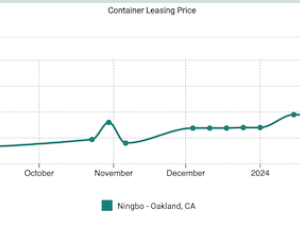By Peter A. Buxbaum, AJOT
During hearing last month, The Antitrust Modernization Commission got both sides of the story on the preservation of Shipping Act antitrust immunities.
Opponents of immunity contended that legally sanctioned collusion among ocean carriers hurts shippers and consumers. Proponents of the current scheme argued that cooperation among carriers benefits the industry. A representative of the American Association of Port Authorities pointed out that the limited antitrust immunity of the Shipping Act also applies to port authorities, and that cooperative measures among competing ports have worked to promote industry efficiency.
The Antitrust Modernization Commission was set up by federal statute. Its twelve members were appointed by the President and Congress to look into whether changes need to be made to the gamut of US antitrust law.
The hearing on the Shipping Act exposed a division on the Federal Maritime Commission, which was asked to express its views on the subject. Chairman Steven Blust, expressing the majority view, noted that the Ocean Shipping Reform Act, which became effective in 1999, represented Congress' modernization of antitrust issues with respect to the ocean transportation industry.
Since OSRA, Blust noted, most cargo moves under confidential service contracts, rather than by tariff rates. Further, carrier 'cooperation is subject to a well-established system of regulation enforced by an expert, independent federal agency.'
Commissioner Joseph E. Brennan dissented. 'Congress should repeal antitrust immunity with respect to rate setting and rate discussions by ocean common carriers,' he wrote. 'Information sharing and space sharing among ocean common carriers should be retained, however, to the extent that such agreements are aimed at enhancing efficiency.'
From Brennan's perspective, 'An exemption from the normal standards of business competition requires continual proof of its necessity.' Antitrust immunity has kept shipping rates higher, he contended, and the extra costs have been passed along to the American consumer. Brennan also noted that the current exemption allows foreign carriers to fix the prices charged to American shippers even though the original antitrust exemption was designed to protect American businesses.
Ocean carriers, not surprisingly, agitated for the retention of the current system. Washington attorney Stanley Sher, representing the World Shipping Council, noted that two-thirds of ocean carrier agreements on file with the FMC are vessel sharing agreements. The result of those agreements, Sher argued, is that 'customers get better service and an increase in the number of competing carriers from which they may choose. The unanimous position is that such agreements should be encouraged,' he maintained.
A smaller class of agreements, which, according to Sher constitute about fourteen percent of those filed with the FMC, are discussion agreements, essentially non-binding rate guidelines. 'The combination of the non-binding nature of any contract guideline and the fact that virtually all cargo today is moved under individually negotiated confidential service contracts means that these groups do not set rates in the manner that the conferences of old did,' Sher contended.
Another view
Carriers in other sectors of the transportation industry, however, took an opposite view. Greg Stefflre, chief executive of the dray company Rail Delivery Services Inc., argued, 'The anticompetitive operational procedures fostered and protected by the existing antitrust laws serve to exacerbate port operational inefficiencies that directly and adversely impact domestic intermodal trucking, port productivity, and the general health and welfare of adjacent port communities.'
Stefflre complained that truckers often are at the mercy of ocean carriers, railroads, and terminal operators, which dictate business terms through the Uniform Intermodal Interchange and Facilities






